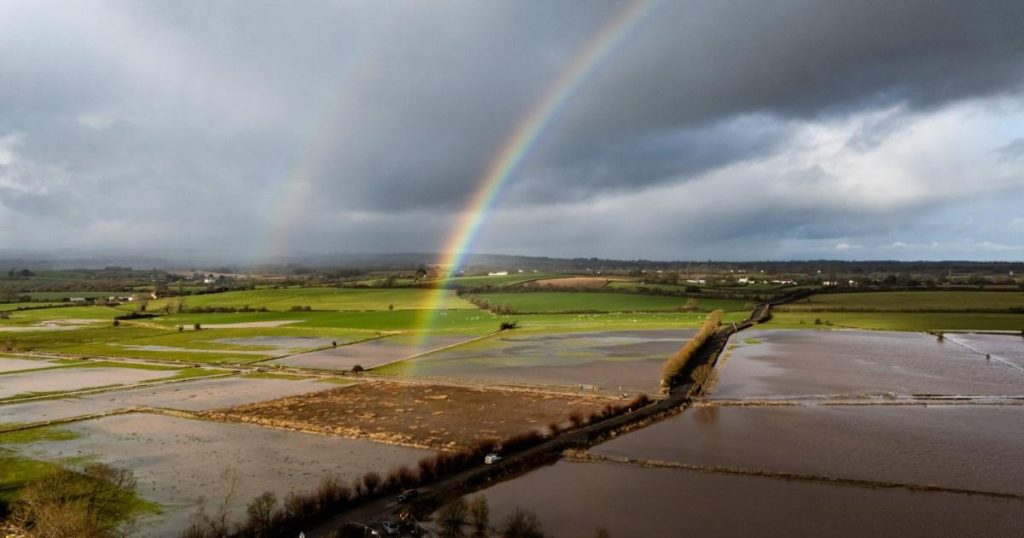The UK has experienced a surge in extreme weather events, causing widespread disruption and highlighting the urgent need for improved flood resilience measures. From flooded fields in Leicestershire to submerged roads in Greater Manchester, the nation has grappled with the devastating impact of heavy rainfall, snowfall, and storms. Tragically, lives have been lost, homes damaged, and communities left reeling from the aftermath. The repeated occurrences of flooding underscore the necessity of shifting from a reactive approach to a proactive one, emphasizing preparedness and mitigation strategies.
The impact of these weather events has been far-reaching, affecting transportation, education, and daily life. Firefighters have conducted numerous rescues, schools have faced closures, and major transportation routes have been blocked by fallen trees and rising waters. The economic cost of repairs has been substantial, with millions of pounds spent on restoring infrastructure and homes. Moreover, the emotional toll on individuals and communities cannot be overlooked. The loss of loved ones, cherished possessions, and the sense of security within one’s home can have long-lasting psychological effects.
Experts warn that unless further action is taken, the frequency and severity of flooding will only increase, putting more lives at risk. Dr. Steven Forrest, a lecturer in flood resilience, emphasizes the need to anticipate future floods and invest in preventative measures. He criticizes the current reactive approach, where authorities often wait for an incident to occur before allocating resources for repairs, only to neglect the issue until the next flood strikes. Dr. Forrest advocates for a shift in mentality, urging for a proactive approach that involves learning from past incidents, strengthening community support, and investing in preparedness measures.
Hull, a city with a history of severe flooding, serves as a stark example of the devastating consequences of inadequate flood defenses. In 2013, a tidal surge inundated thousands of properties and hectares of land, causing widespread damage. Similarly, in 2007, the city’s drainage systems were overwhelmed by record rainfall, resulting in significant financial losses. These events highlight the vulnerability of urban areas to extreme weather and the importance of robust infrastructure. Even London, protected by the Thames Barrier, is not immune to the threat of flooding. A 2024 report warned that the capital is unprepared for a major surface water flooding incident, putting lives and livelihoods at risk. The report emphasizes the limited timeframe for upgrading or replacing the Thames Barrier, a crucial defense against rising sea levels.
The underlying causes of flooding extend beyond natural hazards. Dr. Forrest argues that human choices and decisions play a significant role in shaping the consequences of flooding. Poor infrastructure design, inadequate spatial planning, and the vulnerability of low-income communities exacerbate the impact of extreme weather events. Flooding exposes existing weaknesses in our systems and underscores the need for a more holistic approach to flood management. This involves addressing social inequalities, improving infrastructure resilience, and incorporating flood risk considerations into urban planning.
Practical steps can be taken to mitigate the impact of flooding and improve community resilience. The government advises individuals in flood-risk areas to take proactive measures, such as turning off utilities, moving valuables to higher ground, utilizing flood protection products, and heeding the advice of local authorities. Creating a flood kit with essential documents, medication, and emergency supplies can further enhance preparedness. The National Flood Forum, a charity supporting flood-affected communities, provides valuable resources and guidance for individuals and families. They emphasize the devastating emotional and psychological impact of flooding, highlighting the long-term recovery process and the loss of irreplaceable personal belongings.
Raising public awareness about the severity of flooding is crucial. Recent media portrayals, such as the ITV show “After the Flood,” have helped shed light on the devastating consequences of extreme weather events. These portrayals underscore the importance of community support and the need for proactive measures to address the growing threat of climate change. As heavy downpours become more frequent and intense, it is essential to invest in sustainable water management and flood defense programs. Empowering communities to build their own defenses, whether through sandbagging or funding flood defense schemes, is crucial for enhancing resilience.
Dr. Forrest expresses optimism about the growing awareness of flood risks and the emergence of a new generation of flood risk managers committed to helping communities. He emphasizes the importance of open communication between experts, residents, and students, highlighting the value of pop-up events and flood awareness centers in fostering dialogue and reducing anxiety. Ultimately, the goal is to move beyond a fear-based approach to flooding and empower communities to understand their risks, take proactive measures, and live with water in a more sustainable and resilient manner. Collaboration, education, and a shift in mentality are essential for mitigating the devastating impact of future floods and building a more secure future for all.


